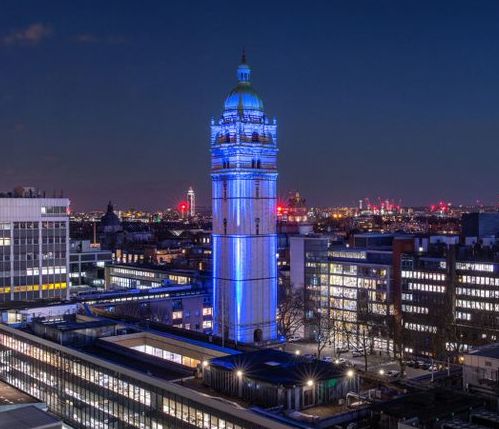Imperial College London
Imperial College London is based on campuses and locations in and around London. REQUEST INFORMATION
KEY INFORMATION:
The main campus is situated in South Kensington, south west London and is a cultural centre for the arts, science and music.
The population of the Greater London area is 13,000,000. London is served by the major international airports Gatwick and Heathrow, with flights worldwide. Both airports are easily accessible by road from Imperial College (approximately 1 hour to both), by rail and underground. The average highest temperature in London is 3 degrees in January. The highest average temperature is 22.5 degrees in July.



UG 10450
PG 5280



Six steps to Imperial College London
Our method to your success
FREE CONSULTATION MEETING
REPORT & INSTITUTION SHORTLIST
APPLY & RECEIVE AN OFFER
WOO HOO! YOUR OFFER IS ACCEPTED
ARRIVAL & POST ARRIVAL SUPPORT
WE ARE WITH YOU EVERY STEP OF THE WAY

Request Information - University Courses
HISTORY:
The origins of Imperial College can be traced back to 1447. Over the following centuries science based faculties were established and medicine became a focus of the teaching. Between 1823 and 1854 medical schools were established at Charing Cross, Westminster and St Mary’s Hospital. In 1907 The Royal College of Science and the City & Guilds of London Institute were incorporated by royal charter into the Imperial College for Science & Technology. In 1988 Imperial College merged with St Mary’s Hospital Medical School to become the Imperial College of Science, Technology & Medicine. Full independence from the University of London was granted to Imperial College in 2007. As can be deduced from the above, Imperial College has a reputation for engineering, technology, science and medicine – and latterly business.
LOCATION:
Imperial College has a number of campuses in and around London. The main site is in South Kensington in the heart of London, near to the museums and galleries of the Exhibition Road. Teaching hospitals include the Imperial College Hospital in Hammersmith, central London, the Royal Brompton Hospital in south west London, St Mary’s Hospital in Paddington, north London, Charing Cross Hospital and Chelsea & Westminster Hospital both in central London, and the North West London Hospital at Harrow.A postgraduate teaching and research site is located at Silwood Park, Ascot, 25 miles west of central London. This was established for studies into ecology, evolution and conservation.
RANKING:
Imperial College London is currently ranked 12th in the Times Higher Education rankings. Imperial is ranked 25th in the Shanghai Tong Jiao rankings. Imperial College London is a member of the Russell group of universities.Imperial College London is ranked 10th in the National Student Survey Satisfaction rankings.
INTERNATIONAL:
Latest figures show that over 9,900 international students are studying at Imperial College London, coming from 126 countries and representing approximately 63% of all students.
SIZE:
Most recent figures indicate 15,730 students in total, of which around 10,450 are undergraduates, and around 5,280 are postgraduates.
EMPLOYMENT:
HESA government statistics show that 92.6% of Imperial’s graduates are in employment or in further education 6 months after graduation. However, a breakdown of post-graduation employment by course, showing the split into professional/managerial positions, rather than general employment figures, is available from Unistats an independent source of university data. For more information, please visit the REF Information page.
FACILITIES:
London is home to over 200 museums, many of which are free to visit. It also houses some of Britain’s major art galleries including the Tate Modern and the National Gallery, which are also free to visit. Following the London 2012 Olympics, sporting venues and opportunities are more varied than ever.Imperial College is a member of the Exhibition Road Cultural Group which comprises 15 local institutions such as the Natural History Museum, the Science Museum, The Royal Albert Hall and the Victoria & Albert Museum who together arrange joint events in the shared space of Exhibition Road. The College owns buildings in Princes Gardens situated close to the South Kensington campus which boasts restaurants, a bar, a health centre and dental practice and a sports centre. Imperial College offers 300 different clubs and societies, sporting, cultural, social and academic.
ACCOMMODATION:
All first year undergraduates are guaranteed accommodation in university-owned residences. The contracts for these are for 38 weeks. There is a wide variety of university accommodation on offer ranging from modern halls of residence such as those on the Kensington campus in Princes Gardens, to converted Victorian town houses in Evelyn Gardens. All are self-catered.The lowest price for a single room with shared bathroom and kitchen facilities is £91.00 per week.There is no catered university accommodation.
COST:
International undergraduate tuition fee examples - BA or BSc:
Fees for full time undergraduate courses start at £35,100 for most courses in the Faculty of Engineering. Courses in the Faculty of Natural Sciences are typically £36,200. Medicine - £46,650
SUBJECT AREAS:
REF (Research Excellence Framework) was an independent government review conducted into the quality of research at UK universities and published in December 2014. This information highlights subjects of specialism within each university. We have listed all subject areas where at least 60% of the research conducted in these specific fields has been graded 3 or 4 stars. (4 stars being the highest ranking REF award). For more information, please visit the REF Information page.
ONLINE COURSES:
Postgraduate distance learning courses are offered and include an MSc in Business Analytics, an MSc in Machine Learning and Data Science, and a Global Master of Public Health.
LIFE AT Imperial College London
We have been helping overseas students gain entrance to Imperial College London for a number of years now, progressing to high profile careers in the UK. Find out more about this school below.
Review
Coming Soon
 LOOKING FOR AN ONLINE COURSE?
Our team can help you find a relevant course for your study.
BOOK A CALL
LOOKING FOR AN ONLINE COURSE?
Our team can help you find a relevant course for your study.
BOOK A CALL
DOWNLOAD YOUR FREE GUIDE TO A QUALITY UK EDUCATION
Sign up to our free Newsletter and you'll get a free copy of our guide to accessing a UK education to help you navigate the entire process.
REQUEST INFORMATION..
Get free instant access to exclusive content and join our monthly email guide
We’re with you every step of the way and will keep you updated on the latest UK education news. Find out more about joining.
